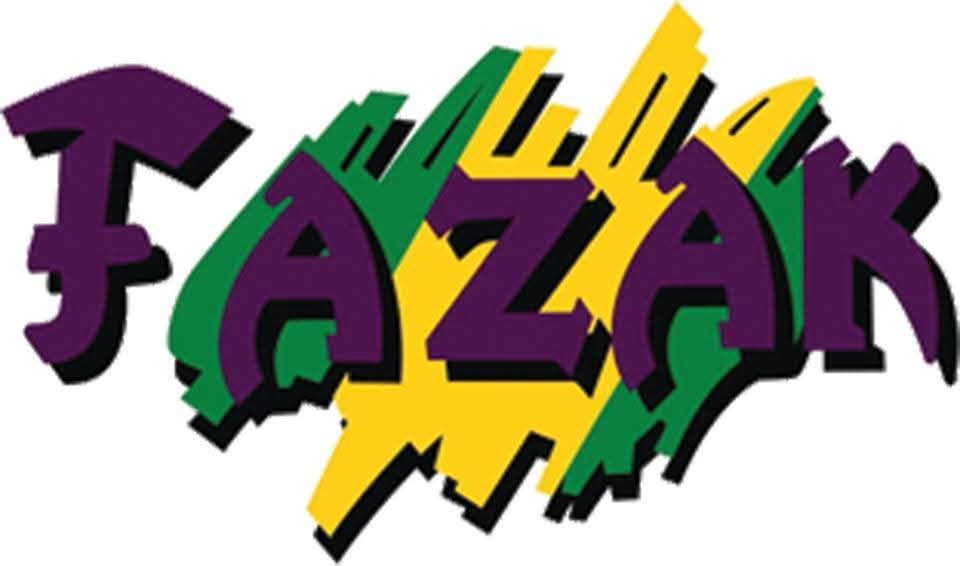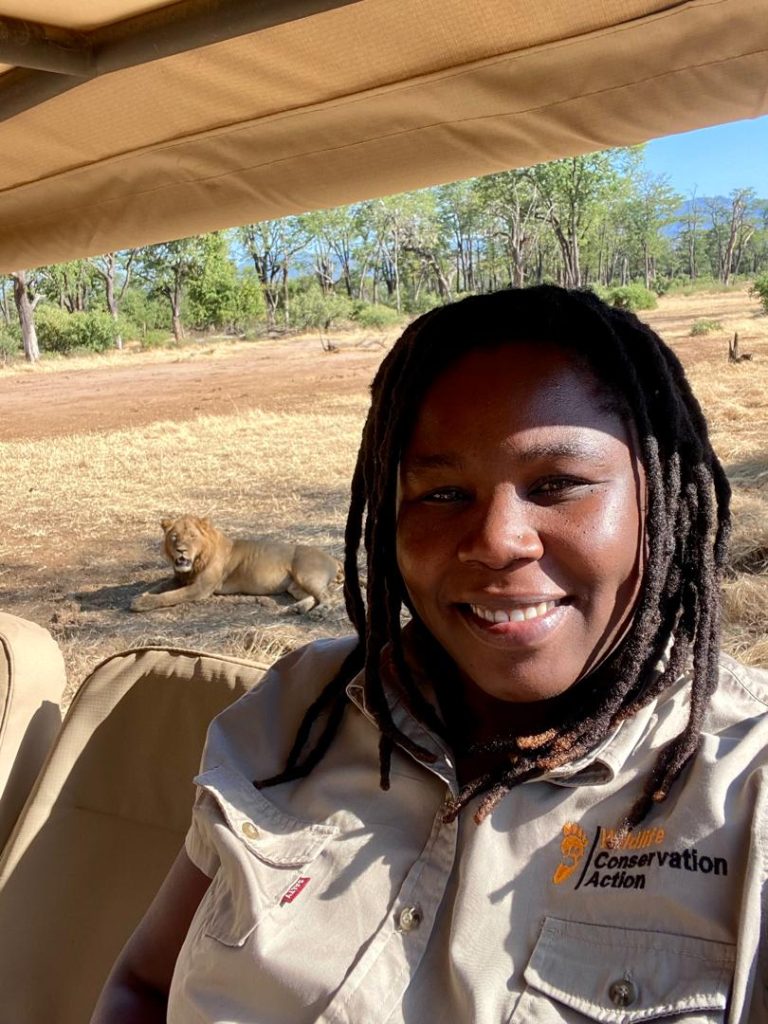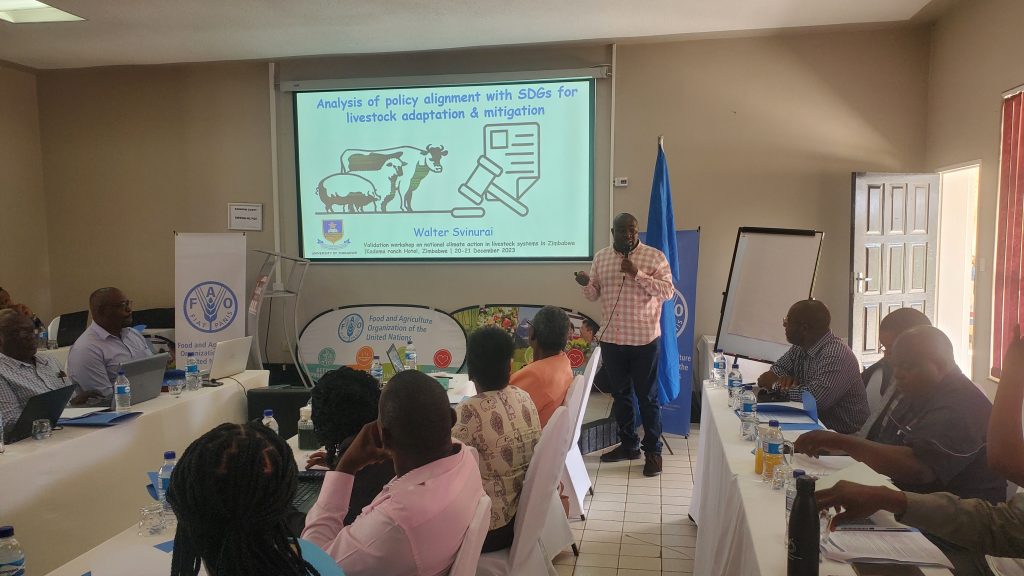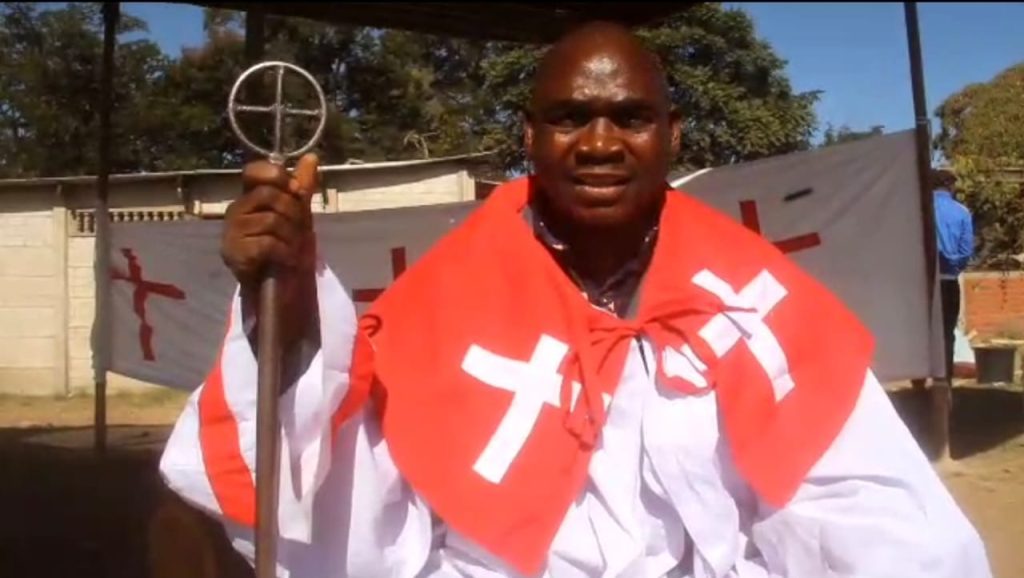DT Correspondent
Kadoma, Zimbabwe – The Food and Agriculture Organization (FAO) is partnering with the Government of Zimbabwe to host a crucial validation workshop on the National Climate Action in Livestock Systems.
The two-day workshop, held under the theme “Scaling-up climate actions to enhance nationally determined contributions (NDC) on climate and livestock,” brings together a diverse range of stakeholders from the public and private sectors.
The primary objective of the workshop is to deliberate on the draft report, which was compiled based on the outcomes of a stakeholder consultative conference held in November.
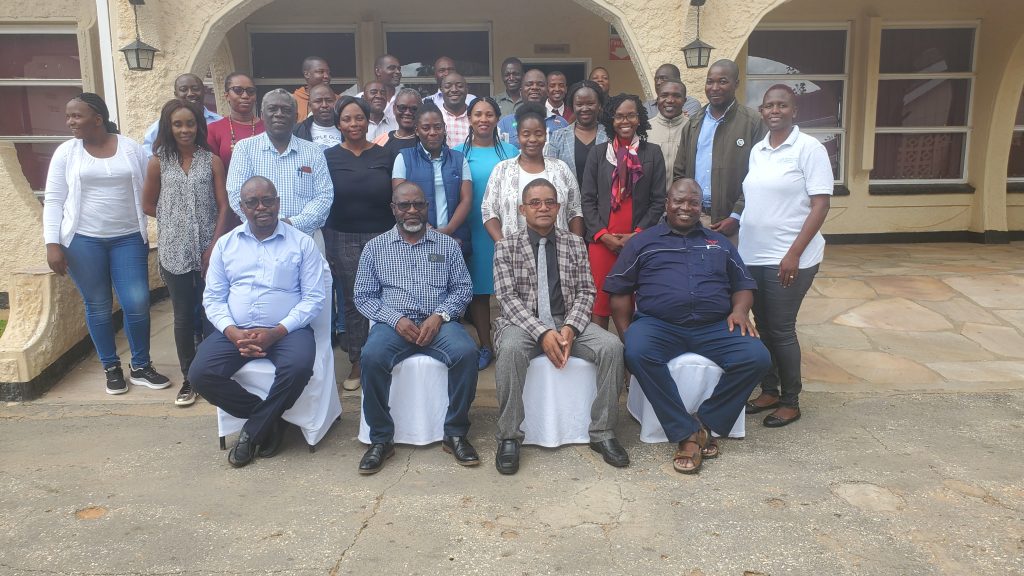
The participants, including experts, researchers, and policymakers, will provide their valuable insights and recommendations to shape the final report, which will play a pivotal role in informing policy formulation.
Dr Svinurai, a climate consultant and lecturer at the University of Zimbabwe, emphasized the significance of the workshop in advancing climate action in the livestock sector.
“The development of the country report on livestock climate action in Zimbabwe is in progress.
“The draft report is being shared with stakeholders for their review and input. Their input shall be incorporated into the main report.
“By the end of this workshop we hope to present the final report to stakeholders for validation, recommendations and endorsement,” he said.
Highlighting the urgency of addressing climate challenges in the livestock industry Livestock Research Director Mr Andrew Chamisa emphasised the workshop’s timeliness, considering the ongoing effects of the El Niño phenomenon.
“It is important to note that this validation workshop is being held at the backdrop of the El Niño-induced drought due to late start of the rain season and the country has experienced extremely high temperatures never felt in recent years.
“I’m sure most of those in the livestock sub space are familiar and aware of the disastrous effects of the drought especially in the southern districts of our country where more than 8000 cattle have reportedly perished due to water and grazing scarcity.
“This has led our government and partners to put in place emergency measures to ameliorate the situation,” said Mr Chamisa.
The country has experienced a delayed rainy season and exceptionally high temperatures, exacerbating the impact of the drought.
Southern districts, in particular, have faced significant challenges, with reports indicating the loss of over 8,000 cattle due to water and grazing scarcity.
In response, the government and its partners have implemented emergency measures to mitigate the situation.
The validation workshop serves as a critical platform for stakeholders to collectively address the climate-related vulnerabilities in the livestock sector and devise strategies to enhance resilience.
By harnessing their expertise and collaborating with international organizations like FAO, the government aims to develop comprehensive and effective climate actions that will safeguard the livelihoods of livestock keepers and contribute to Zimbabwe’s climate commitments.

